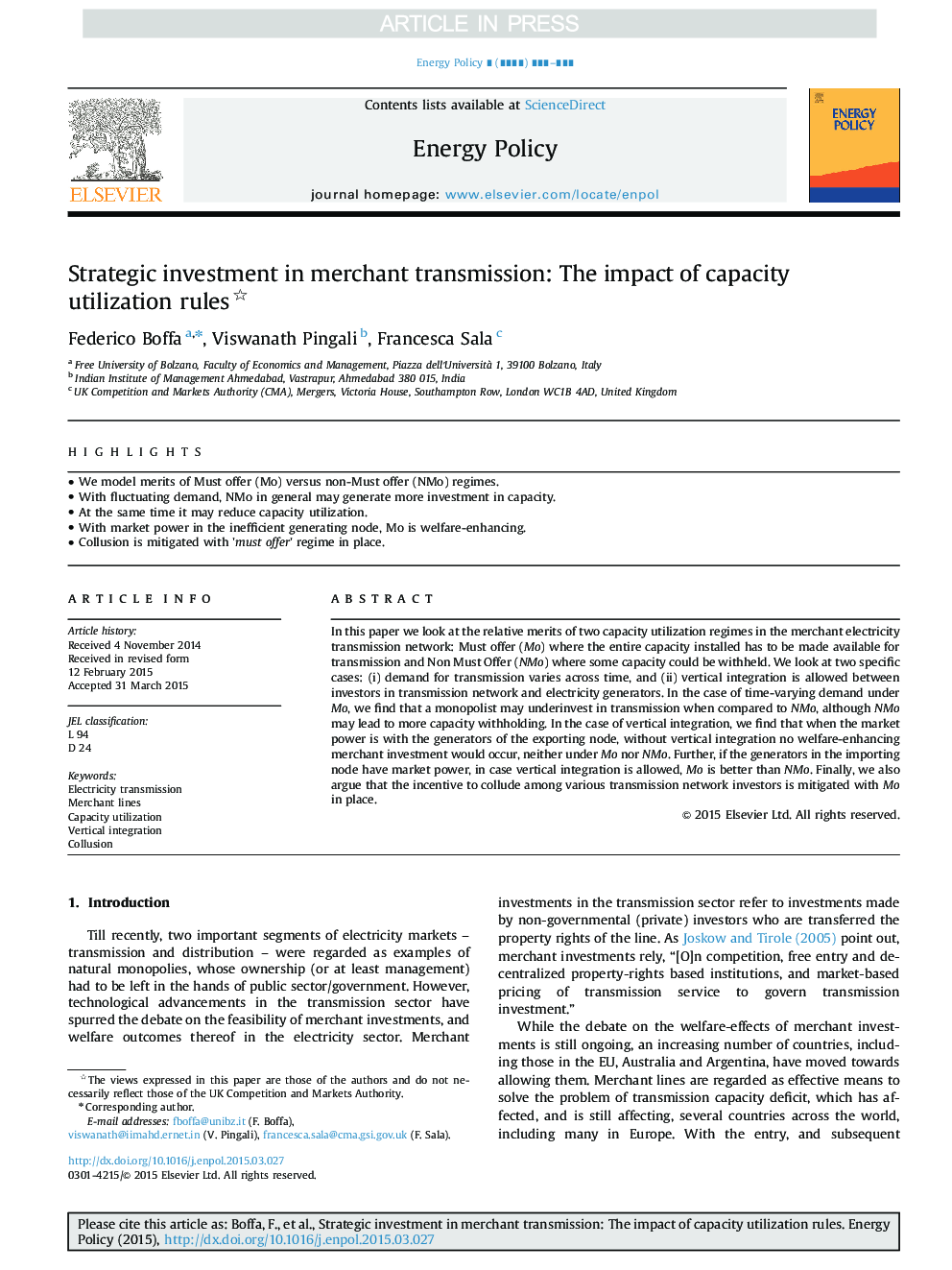| Article ID | Journal | Published Year | Pages | File Type |
|---|---|---|---|---|
| 7400320 | Energy Policy | 2015 | 9 Pages |
Abstract
In this paper we look at the relative merits of two capacity utilization regimes in the merchant electricity transmission network: Must offer (Mo) where the entire capacity installed has to be made available for transmission and Non Must Offer (NMo) where some capacity could be withheld. We look at two specific cases: (i) demand for transmission varies across time, and (ii) vertical integration is allowed between investors in transmission network and electricity generators. In the case of time-varying demand under Mo, we find that a monopolist may underinvest in transmission when compared to NMo, although NMo may lead to more capacity withholding. In the case of vertical integration, we find that when the market power is with the generators of the exporting node, without vertical integration no welfare-enhancing merchant investment would occur, neither under Mo nor NMo. Further, if the generators in the importing node have market power, in case vertical integration is allowed, Mo is better than NMo. Finally, we also argue that the incentive to collude among various transmission network investors is mitigated with Mo in place.
Related Topics
Physical Sciences and Engineering
Energy
Energy Engineering and Power Technology
Authors
Federico Boffa, Viswanath Pingali, Francesca Sala,
